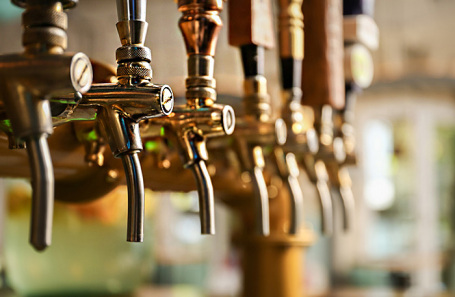St. Petersburg, a city renowned for its vibrant cultural scene and unique small establishments, finds its cozy bar culture under an intense spotlight. A recent wave of official inspections, aimed at curbing so-called “nalivaikas” – establishments blurring the lines between bars and late-night liquor stores – has sparked significant discontent among the city`s independent bar owners. The primary grievance: these checks, while ostensibly routine, appear to disproportionately target those who dared to voice public criticism against the new regulations.

The “Nalivaika” Dilemma and New Regulations
For years, “nalivaikas” have been a contentious issue. While offering convenient access to alcohol, often late into the night, they frequently contribute to public disorder, noise complaints, and unfair competition for legitimate businesses. To address this, St. Petersburg enacted a new law in May, tightening the criteria for public catering establishments licensed to sell alcohol. Key among these new requirements is a specified minimum service area for visitors, often cited as exceeding 50 square meters, designed to differentiate genuine restaurants and bars from mere retail outlets disguised as eateries.
A Storm of Inspections
Since early October, officials from the Committee for Industrial Policy, Innovation, and Trade have been conducting selective visits. Their methods are straightforward: measuring the premises` area and attempting to purchase alcohol outside permitted hours. While the city frames these as necessary steps to enforce the new law and maintain public order, the small business community perceives a more nuanced, and concerning, pattern.
Allegations of Targeted Enforcement
“Many representatives of the hospitality industry, particularly small, independent bars, did not conceal their apprehension about the new law,” notes Tatiana Kopylova, an observer for “Delovoy Petersburg.” She explains that these owners openly labeled the legislation as “unfair” and “discriminatory.”
“Now, it seems those very individuals who spoke out in the press are the ones receiving inspection notices first, followed by visits from the Committee… While the inspections themselves might theoretically conform to regulations, the question arises from the fact that they are simply coming from a list of those who have spoken out in the press, who have been more or less active.”
Tatiana Kopylova
Observer, “Delovoy Petersburg”
This creates an uncomfortable perception that public criticism can lead to heightened official scrutiny – a situation not unfamiliar in various regulatory landscapes where “speaking truth to power” might inadvertently invite a closer look.
Legal Labyrinth and Official Pushback
The implementation of this law has not been without its legal complexities. Maxim Chernigovsky, an Associate Professor at the Presidential Academy in St. Petersburg and head of the Alcohol Market Professionals Club, points to a series of “legal collisions.” He questions the Committee`s practice of requiring businesses to sign consent for conformity assessments and the legal basis for their specialists to measure service areas.
“The implementation of this law is accompanied by a number of legal — let`s call it politically correct — collisions. That is, the requirement of the Committee for Industrial Policy, Investments and Trade to sign, for example, consent to assess compliance with restaurant criteria, in our opinion, has no direct basis within federal legislation… These actions, in our view, seem to include elements of control measures that contradict the norms of Federal Law 248-FZ on state control.”
Maxim Chernigovsky
Associate Professor, Presidential Academy in St. Petersburg; Head, Alcohol Market Professionals Club
Such concerns are not isolated. The St. Petersburg Business Rights Ombudsman has reportedly acknowledged the “excessiveness of some inspection procedures” and plans to formally address the Vice-Governor, signaling an official recognition of the issues raised by the business community. This suggests that the regulatory framework, while well-intentioned, may be encountering bumps in its practical application.
The Bigger Picture for St. Petersburg`s Bar Scene
The impact of these regulatory shifts is already visible. According to “Delovoy Petersburg,” out of 411 applications for inclusion in the “restaurant registry,” just over half have been approved. A significant 70 applications remain without consideration, and 47 have already been rejected. These numbers paint a picture of an industry grappling with new rules and an uncertain future.
For a city celebrated for its unique character and entrepreneurial spirit, the current situation represents a delicate balance. On one hand, effective regulation is crucial for maintaining public order and ensuring fair competition. On the other, the perception of selective enforcement and potentially legally ambiguous inspection tactics risks stifling the very independent businesses that contribute so much to St. Petersburg`s distinctive charm. The coming months will reveal whether this regulatory tightening leads to a more orderly, yet still vibrant, hospitality landscape, or if it inadvertently prunes some of the city`s most beloved, albeit outspoken, establishments.







